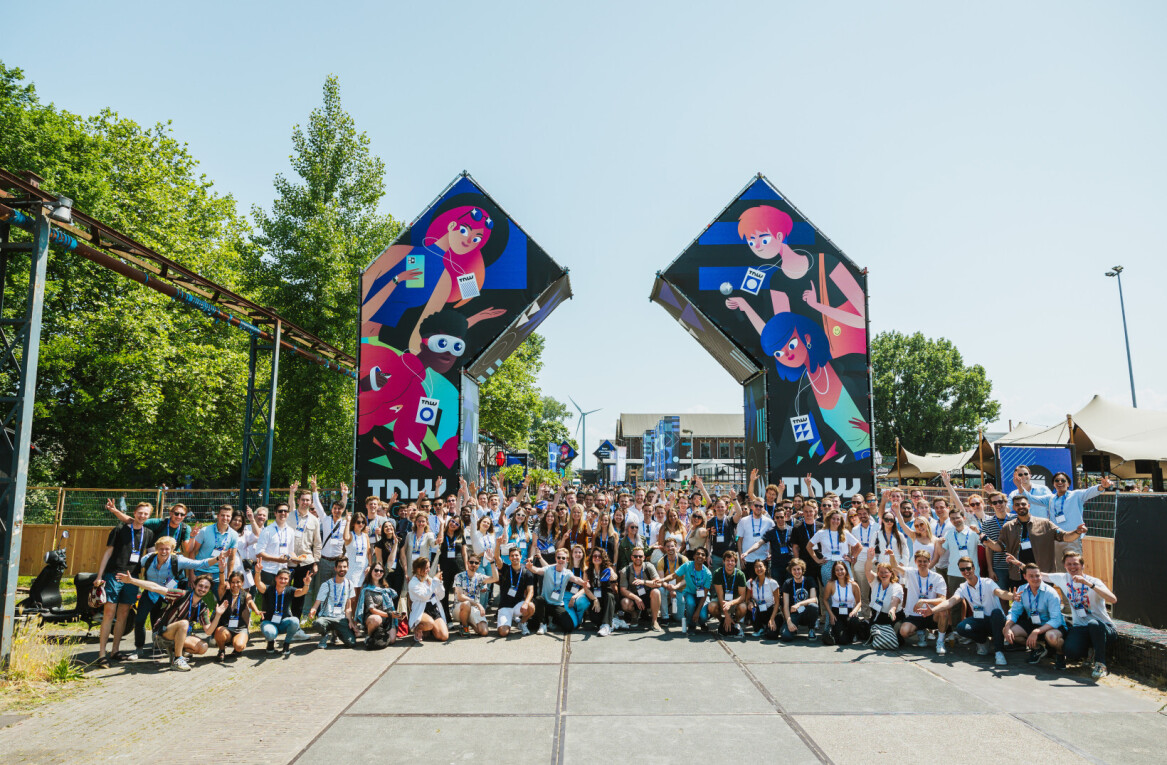
It’s no longer good enough to be in business for yourself alone — if it ever was in the first place.
Corporate social responsibility is more important than it’s ever been, and consumers — especially younger consumers— are much more cognizant of a corporation’s purpose than they’ve ever been. But don’t confuse the idea of corporate social responsibility with the idea of purpose.
Every year, the Chivas Venture gives $1 million in no-strings funding to startups that are creating positive change in the world. This year’s final five finalists, who together won $800,000 in funding, shared their insights on how to balance doing good with making a profit.
Let’s start with the basics
Building a brand with purpose is about more than just “let’s run charity events” or “support causes people believe in.” If you’re a brand that’s only mindful of corporate social responsibility out of self-interest in your public image, that’s not being a brand with purpose.
Otherwise, it’s not a brand that will last, but a scam.
To build a brand with purpose, you have to be focused on long-term value creation. Making people’s lives better is a rising tide that lifts all boats.
Calling out corporate responsibility so that you can make people better about the same old motives that are only focused on profit isn’t purpose. It’s just dishonest marketing, and sooner or later those chickens will come home to roost.
Why be a brand with purpose?
Simply put, whether you want to or not, you probably don’t have a choice.
Larry Fink, CEO of the world’s largest investment company, probably put it best:
“Society is demanding that companies, both public and private, serve a social purpose. To prosper over time, every company must not only deliver financial performance but also show how it makes a positive contribution to society.”
The idea of corporate responsibility has extended beyond the immediate shareholders of the company. We live in a world that’s more connected than it’s ever been, and companies are able to significantly affect the world in a way that they might not have been able to a hundred years ago.
At the same time, the rise of social media and the 24-hour news cycle have made it impossible for less scrupulous brands to hide — at least, not for the long term.
Every organization must be a brand with purpose, and that purpose has to be altruistic. Every brand revolves around solving a problem or helping with a need that some part of the public has, in other words, doing good.
The only difference now is that “doing good” has a much broader application.
For Cemal Ezel, the London-based founder of Change Please and winner of the Chivas Venture Competition, “doing good” started with brewing good coffee.
His company trains homeless people to become baristas in one of the 17 UK coffee locations, and also offers support with other educational programs, housing and opening a bank account.
Ezel wasn’t always a social entrepreneur: He actually started his career as a commodity broker. “A few years ago, I met an American backpacker while I was traveling in Vietnam. We stroke up a conversation and I told him I wasn’t happy in my job. Then he gave me what’s probably the best advice of my life: ‘You need to do the rocking chair test.’ It’s a thought experiment where you envision yourself as a 90-year old, sitting in a rocking chair, overthinking your life. Are you proud of what you’ve accomplished? Do you feel your life had meaning? To me, that was the straw that made me want to change my career.”
How do you balance doing good with profits?
One of the ways you can balance doing good with your profits is to make sure that an altruistic purpose is a fundamental part of your company’s ethos. If you’re only putting up window dressing, it’ll never fly.
Even more importantly; no matter how noble the cause, your product or service still needs to make sense, just like every other product on the market. That means it needs to fill a need and outperform potential competitors.
“There’s a common misconception that social businesses can’t have a competitive edge over their non-social competitors,” says Eric Sicart, Global Business Development Manager at Braibook, another Chivas Venture Competition finalist. His company has developed a nifty tool that lets blind and visually impaired people “translate” digital documents into braille. Being the size of a small remote control, users can bring it wherever they go.
“If we would have created a product that’s inconvenient to use or carry around, our audience would just keep buying braille books. If our product would be very expensive, our audience would keep buying real-time braille displays, which range from $850 to $3000. [Braibook only costs $395.] So whether or not you serve a social cause, your product will always have to make commercial sense on its own.”
So how do you build a brand with purpose?
There are a few steps to this.
Firstly, think about responsibility as not just being something you have for your shareholders, but for your community, your country and the world. That includes a lot of listening, says Jalila Essaidi who founded Mestic. Her company, which is based in the Netherlands, takes cow manure and converts it into sustainable raw materials, such as textiles. Farmers will also be able to buy a license so they can make use of the patented technology.
“This sector includes a large group of stakeholders: farmers, governmental institutions, retail brands, and banks. So I had to take a step back to really listen to their input, process the information and come up with a solution where everyone gets a piece of the pie,” she says.
But when you do find that solution, stick with it. “There will always be a few investors who just see dollar signs and try to stir you away from your vision in order to make bigger profits. I’ve learned how to stand my ground.”
Second, figure out a way to turn your company’s expertise to work on making the world a better place. Maybe that’s just with money, or maybe your company has resources that can be devoted to a problem. A great example of that is when beer companies got together and sent canned water to Flint, Michigan.
Some ways you can do this include focusing on philanthropy, more ethical operations, or business models that focus on improving lives.
Make sure you make it public that you’re acting altruistically, too.
This serves two purposes: it both helps potential customers see that you care about more than just your margins, and it helps encourage other companies to care more.
If your brand doesn’t have a purpose beyond “maximize profits,” you’re headed for problems down the line. Embrace greater purpose and you’ll make an impact far beyond the bottom line.
Next, make sure you have a proper support system, advises Kim Lim Yuet. She co-founded the Malaysian company Picha Project, which offers a food delivery and catering service provided by refugees in the country.
“Entrepreneurship is all about trial and error: experiment fast, fail fast, and pick yourself up fast. In order to make that happen and not wallow in your failure, it’s important to be able to talk to someone you trust. To me, that’s my family as well as my business partners.”
And last, keep in mind that growing a social impact company isn’t that different from any startup: Prepare yourself for a lot of ‘no’s’, unimpressed investors, and late nights at the office. “Resilience and persistence are key,” says Diana Yousef who founded change:WATER Labs in the US. Her startup provides portable toilets that don’t require plumbing to vulnerable communities, particularly women.
“Before starting this company my career had somewhat stalled. I’d just had a daughter and in all honesty, companies weren’t dying to hire me. But that did allow me to get to a point where I had nothing to lose.”
Don’t think it was all smooth sailing after that. “God no, I was faced with many setbacks, criticism, even sexism at times. When pitching my idea to investors and explaining how change:WATER Labs can empower women, I was asked by a guy if the toilets can also be used at Burning Man. But I stuck with my story and kept pushing. And then, at some point, a door will open — and it did.”
Building a brand with purpose is about more than just “purpose-washing” or “green-washing” yourself. It has to be more than skin-deep. Because at the end of the day, we’re all citizens of the same community — whether it’s local or global — and a company has a responsibility to make people’s lives better.
Get the TNW newsletter
Get the most important tech news in your inbox each week.





